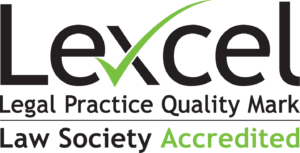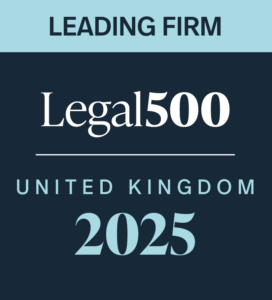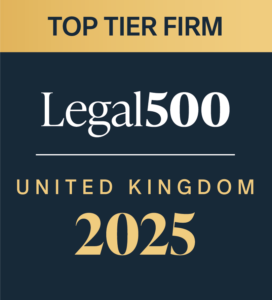Share buybacks: The consequences of getting it wrong

Share buybacks are an effective and popular mechanism that allows companies to purchase their own shares. However, the process is not without complexity.
The Companies Act 2006 sets out clear and prescriptive formalities that must be complied with. Failure to do so will result in the attempted buyback being void and may lead to directors breaching their statutory and common law duties.
Share buybacks
Share buybacks are a useful device for companies seeking to return surplus cash to shareholders, or to facilitate a shareholder exit. Although the Companies Act 2006 (CA 2006) generally prohibits companies from acquiring their own shares, a share buyback is an effective exception to this rule.
However, they are easy to get wrong. Companies considering this particular route should seek appropriate legal and tax advice before embarking on the process due to the severe consequences of getting it wrong.
If you are considering a buyback, contact our team of experienced solicitors for clear, expert guidance.
What should I consider before a share buyback?
How will the buyback be funded?
Not only does a company need to have the necessary cash available to pay for the shares being bought back, the directors also need to be confident that its accounts show that it has generated (and accumulated) distributable profits at least equal to the value of the shares to be bought back. There are some limited exceptions to this, but whether or not those exceptions can apply requires very careful analysis.
Check the company’s articles of association
Under the CA 2006, there is no requirement for a company’s articles of association to authorise the company to be able to purchase its own shares. However, it is crucial that the articles of association are examined carefully to ensure they do not restrict or prohibit the company from purchasing its own shares.
Will shareholder approval be obtained?
Whilst a share buyback may be agreed in principle between the company and its shareholders, a formal resolution of the shareholders (excluding the shareholder whose shares are being bought) must be passed to approve the terms of the buyback agreement.
Are the shares fully paid?
A private limited company can only buy back shares that are fully paid. Where a company has partly paid shares, it should ensure that – prior to undertaking a buyback – the shares are fully paid up.
Are there any other formalities?
Once a share buyback has completed, there are a number of formalities that need to be complied with. Shares bought back may need to be cancelled, various filings must be made at Companies House and stamp duty may need to be paid to HM Revenue & Customs.
What are some common mistakes associated with share buybacks?
Not paying cash
A company must pay cash for the shares being bought back. It is not possible to buy back the shares and off-set the value against a debt owed by the shareholders, and it is not possible to issue a different class of shares instead, or transfer an asset as payment, for example. The payment must be in cash, otherwise the buyback will be void.
Timing
The payment due to the shareholder must be paid in full, in cash, on the date of the contract. If the company does not pay for the shares in full at the time of completion of the buyback agreement, the transaction will be void, regardless of whether the required documents have been correctly completed.
The articles of association did not authorise the buyback
Is it essential that a company considering a buyback checks its articles of association to ensure they do not prohibit the buyback. If a company’s articles of association do prohibit it from purchasing its own shares, it may be possible to amend the articles of association to remove such a restriction.
No written agreement
For a buyback of shares to be valid there needs to be a written buyback agreement that documents the terms agreed between the selling shareholder and the company. Simply returning and destroying a share certificate is not sufficient.
Not obtaining shareholder approval
The company’s shareholders (other than the shareholder whose shares are being bought back) must formally approve the contract to be entered into between the company and the shareholder that will document the buyback. This approval must be sought before the process is completed.
The company did not have sufficient distributable reserves to fund the buyback
If a company asserts that a share buyback was funded out of distributable profits, but it later transpires that the company did not have sufficient distributable profits, the buyback could amount to an unlawful distribution.
The directors may find themselves in breach of their statutory and common law duties and may be personally liable to repay the company the amounts that have been unlawfully distributed. The selling shareholder should also be mindful that if they knew or had reasonable grounds to believe that the distribution was in breach of the rules on distributions, they may also be personally liable to repay the portion of buyback consideration that was unlawful.
Appropriate accounting advice should always be sought when proposing a buyback out of distributable profits.
Failure to update Companies House
Companies House must be updated within 28 days of completion of the buyback. Failure to do so is a criminal offence.
What are the consequences of a void buyback?
Where a company has attempted to undertake a share buyback but has breached the requirements of the CA 2006 the law is very clear: it will be void.
This may mean that despite the company having paid for them, the shares which were subject to the buyback may still be owned by the selling shareholder (who will be entitled to receive any dividends on shares of the same class that were declared after the void buyback), and the selling shareholder owes a debt to the company equal to the cash that has been transferred to them.
Ineffective buybacks are often not discovered until a company is being prepared for sale and when historic buybacks are scrutinised as part of the buyer’s due diligence process. This can substantially delay a sale as a void buyback cannot be rectified by resolution and documents cannot be backdated to reinvent history; the process will need to be unravelled (if possible) and the buyback be implemented from scratch (in the correct manner).
This can be a difficult and lengthy process, and the legal and other professional costs involved are likely to be far greater than those involved with getting appropriate advice in the first place. We therefore strongly recommend that you seek legal and accounting advice before proceeding with a share buyback process.
Contact usOur corporate & commercial team is rated by national legal guides The Legal 500 and Chambers UK. The department’s expert lawyers can help businesses big or small on a variety of challenges that may arise.
Preparing for a management buyout
For owners looking to sell their business, a management buyout (MBO) is one of a multitude of possible options available. What do you need to consider when preparing for a…
Peter Raybould LLB (Hons)
Partner

Companies House identity verification requirements to come into force from autumn 2025
Under the Economic Crime and Corporate Transparency Act 2023 (ECCTA), reforms have been introduced to Companies House concerning identity verification, which will become compulsory from autumn 2025. Our corporate solicitors…
Helen Howes LLM
Senior associate, solicitor

Helping Joedan on their journey
For almost three decades, Willans has advised a nationally renowned specialist in trade supply and home and commercial improvements. Here, in the first of a series of articles, we reflect…










